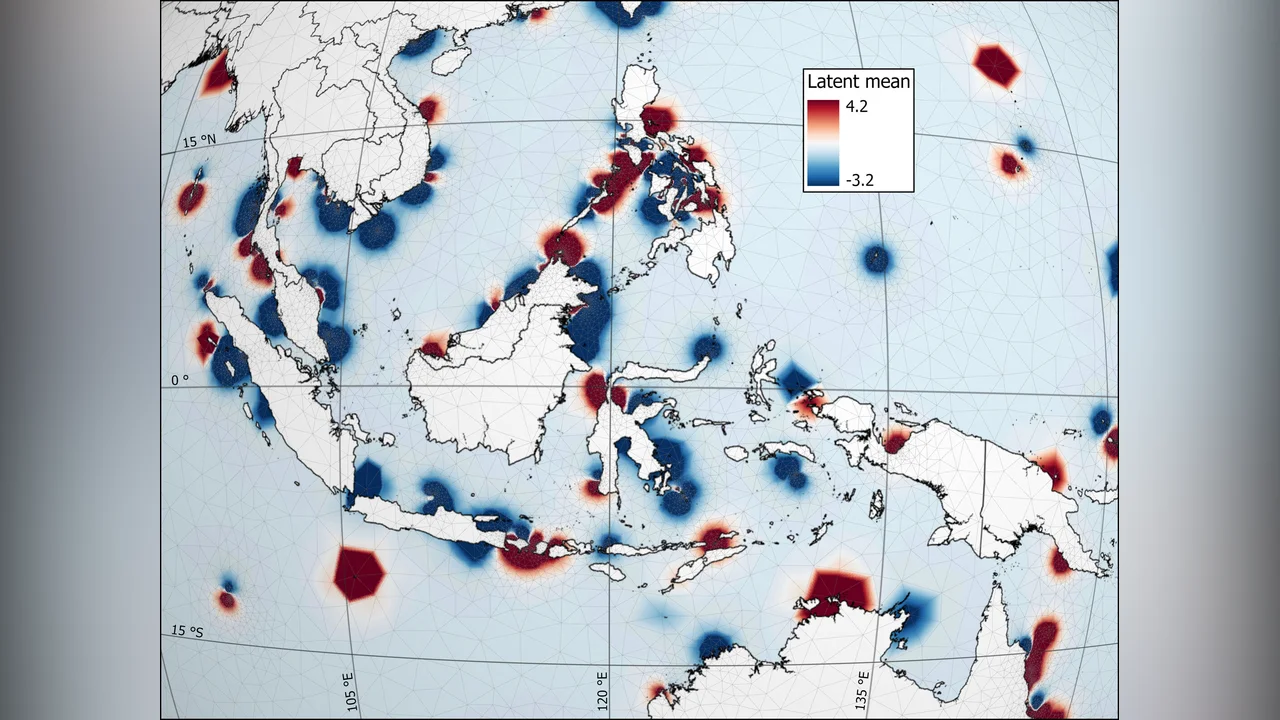
Equatorial Coral Reefs May Offer Natural Refuge During Marine Heatwaves
A new study published in Global Change Biology reports that equatorial reefs in the Coral Triangle may act as rare natural refugia for corals during marine heatwaves.
About
Analysing nearly two decades of global satellite and observation data, the researchers found that reefs in this region consistently experienced lower heat-stress intensity. This is likely due to unique oceanographic conditions such as persistent cloud cover and strong curents. These factors could provide critical protection for coral ecosystems as climate-driven heatwaves intensify worldwide.
Prof. Håvard Rue, head of the BAYESCOMP group at KAUST, contributed to the study’s statistical framework, which relied on advanced Bayesian modelling to quantify spatial patterns of heat exposure and bleaching risk with high precision. This collaboration highlights the growing importance of Bayesian computation as a tool for understanding complex environmental systems and informing conservation strategies.
To read more, see the FIT.edu news article or the original journal publication (DOI: 10.1111/gcb.70594). Figure reproduced from Ferris et al., 2025, Global Change Biology, under CC BY license.
